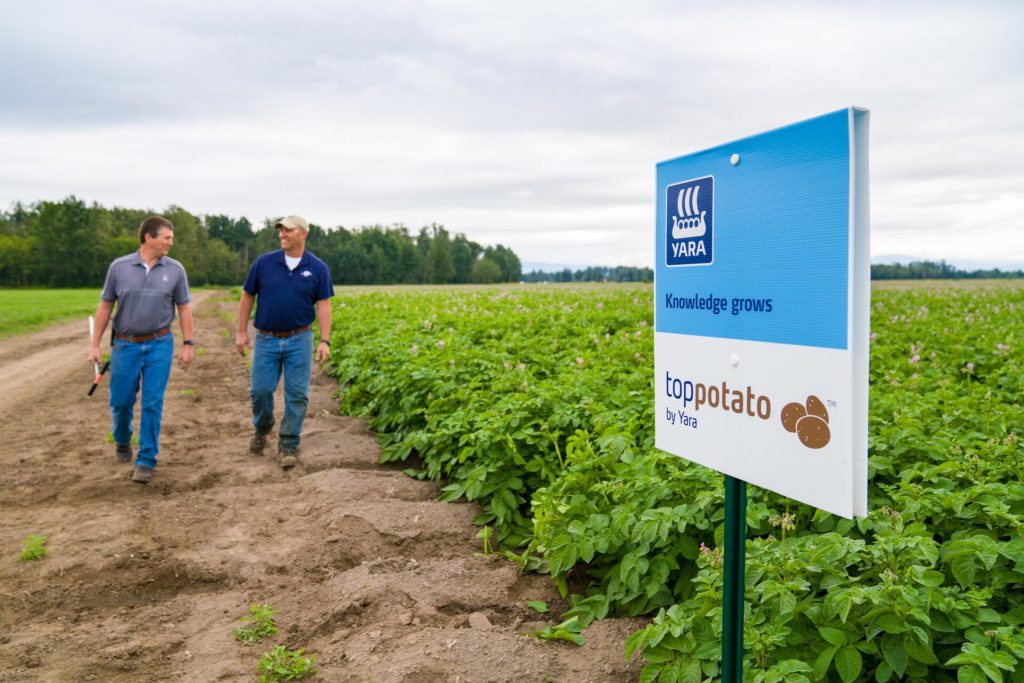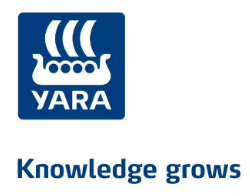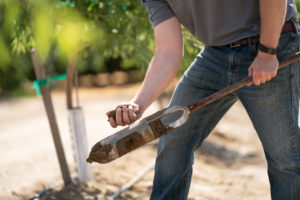

Nov 1, 2022Yara’s incubator farms focus on soil health
Soil health is a key part of Yara North America’s new incubator farm in Auburn, Alabama.
At the 80-acre farm at Auburn University’s E.V. Smith Research Station, practical approaches to managing and influencing soil health are a focus.


Similar Yara incubator farms in California and Washington for almonds and potatoes, respectively, are pursuing the same goal, which ultimately is grower success while protecting the environment.
“The incubator farm will have a pointed focus on managing our soils, what changes and impact can we make to soil health over time by using established foundation practices mixed with new approaches,” Cutts said. “We’re not a traditional fertilizer company. We take seriously our mission to provide food and nutrition.
“But we also recognize the growing of food and fertilizer are not necessarily friendly to our garden,” he said. “We must take conscious steps to try to protect our planet.”
Grower profitability
Farmers face economic pressures of finding and keeping a workforce, and implementing sustainable practices to lower their carbon footprint adds to that pressure, Cutts said.
“We have to understand what society’s demanding – how do we develop fertilizer resources and technologies so growers can achieve what society and consumers are demanding, but maintain and grow their profitability?”


Scientists have only cracked the surface in understanding soil, Cutts said, but significant advances in the past decade have been made in understanding how microbiomes can affect root health, nutrient cycling, as well as nutrient use and efficiencies, Cutts said.
“Amazingly, we can have an impact on different aspects of the soil, such as soil aggregation, which can increase water holding capacity, further increasing root growth,” he said.
As institutions and organizations learn more about soil microbiome, Yara wants to take that research and show farmers practical applications to make them more productive and efficient.
The incubator farms are designed to help the industry build on already proven science, through more production-level granular research on cover cropping, minimal tillage, crop rotation and managing nutrient input.
That involves embracing soil variability. Yara wants to narrow the more than 100 tools that can measure soil health, based upon cropping systems and soil types, critical factors that can affect productivity. In some cases, that may involve organic matter, soil pH and soil aggregates. The effort is designed to help the industry improve soil productivity via technology, said Cutts.
That includes how the industry can appropriately manage nutrients while balancing pH and maintaining productive soils.
While it’s either organic or mineral nutrients, Yara believes the combination of those different systems hasn’t been exploited. Cutts said Yara seeks to discover a balance and the most beneficial approaches for soil health and crop productivity.
“We have to look at the soil as a crop in itself,” he said. “Let’s look at the soil as a valued commodity. We must keep it as productive as possible.”
The collaborative approach should help improve soils while keeping growers profitable.
“The spirit of the incubator farm concept is that it’s not one organization, one entity or one product,” Cutts said. “It’s a combination of all these. We as an industry must come together to create more holistic solutions.”
—Doug Ohlemeier
Top photo: Yara’s Jimmy Ridgeway, left, with a grower, visiting the company’s incubator farm for potatoes at Moses Lake, Washington. Yara promotes better soil health at its three incubator farms. PHOTOS courtesy YARA.
Bottom photo: The company takes soil samples for testing.














